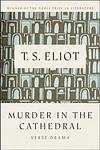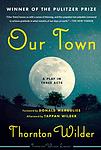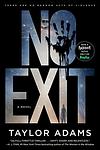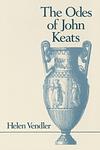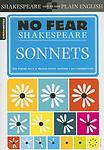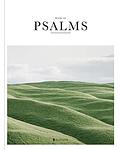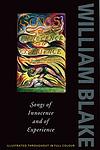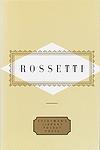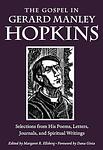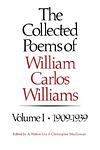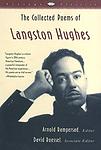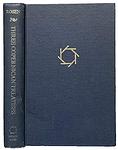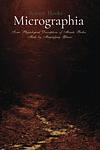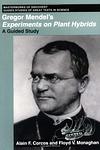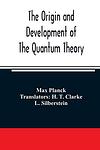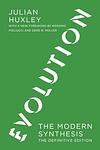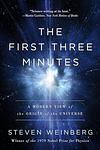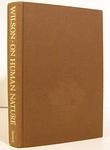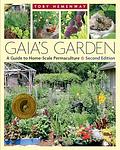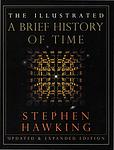The Well-Educated Mind
This is one of the 305 lists we use to generate our main The Greatest Books list.
-
Tartuffe by Molière
This classic French play revolves around the character Tartuffe, a hypocritical and cunning man who pretends to be deeply pious and religious. He manages to deceive Orgon, a wealthy family patriarch, into believing in his piety. Orgon is so taken in by Tartuffe that he decides to marry him off to his daughter, despite her love for another man. The family works together to expose Tartuffe's true nature, leading to a series of comic and dramatic events. The play is a satirical critique of religious hypocrisy and gullibility.
The 530th Greatest Book of All Time -
The Way Of The World by William Congreve
"The Way of the World" is a Restoration comedy that explores the themes of love, marriage, and deceit in the high society of 18th century London. The plot centers around the complex relationship between Mirabell and Millamant, two lovers who must navigate a maze of social expectations and personal schemes to secure their future together. With a cast of characters that includes the cunning Fainall, the foolish Witwoud, and the manipulative Lady Wishfort, the play satirizes the manners and morals of the time, showcasing the intricate dance of courtship and the artifice involved in securing both love and fortune. Through witty dialogue and intricate plotting, the play critiques the superficiality of society while ultimately affirming the value of true wit and love.
The 3642nd Greatest Book of All Time -
She Stoops to Conquer by Oliver Goldsmith
"She Stoops to Conquer" is a comedic play that revolves around the story of a wealthy countryman, Mr. Hardcastle, who arranges for his daughter, Kate, to meet Charles Marlow, the son of a wealthy Londoner, hoping the pair will marry. However, Marlow is nervous around upper-class women, yet gets along fine with lower-class women. Kate learns of this and pretends to be 'common' to get to know him. The play concludes with Kate revealing her true identity, and Marlow, who is in love by this point, is relieved she's actually of the upper class. The play explores themes of class, courtship, and the deceptive nature of appearances.
The 1591st Greatest Book of All Time -
The School For Scandal by Richard Brinsley Sheridan
The play is a satirical depiction of the gossip and hypocrisy found in the high society of 18th century London. It centers around two brothers with contrasting personalities, one appearing to be a model of virtue and the other a dissolute rake, and the schemes of a circle of wealthy, idle gossipmongers. The plot thickens with a series of misunderstandings, eavesdropping, and mistaken identities, all revolving around the brothers' romantic pursuits and the malicious spread of scandal. The narrative ultimately exposes the true characters of the individuals involved, revealing the seemingly virtuous brother to be hypocritical and the seemingly dissolute one to be honorable, thus critiquing the superficial judgments and moral corruption of the elite.
The 2062nd Greatest Book of All Time -
A Doll's House by Henrik Ibsen
This classic play focuses on the life of Nora Helmer, a woman living in a seemingly perfect marriage with her husband, Torvald. However, as the story unfolds, it becomes clear that Nora has been hiding a significant secret related to their finances. The revelation of this secret, and the subsequent fallout, challenges societal norms and expectations of the time, particularly in regards to gender roles and the institution of marriage. Nora's eventual decision to leave her husband and children in pursuit of her own independence serves as a powerful commentary on individual freedom and self-discovery.
The 324th Greatest Book of All Time -
The Importance of Being Earnest by Oscar Wilde
This comedic play revolves around two protagonists who both use the pseudonym "Ernest" to escape their social obligations. Their plans unravel when they fall in love and their betrothed women reveal they are only willing to marry men named Ernest. The situation is further complicated by a case of mistaken identity, a lost handbag, and a surprising revelation about one of the protagonist's parentage. The play uses wit and humor to satirize the social conventions of Victorian England, particularly the importance placed on trivialities.
The 598th Greatest Book of All Time -
The Cherry Orchard by Anton Chekhov
"The Cherry Orchard" is a classic play about an aristocratic Russian woman and her family as they return to their family estate, which includes a large and well-known cherry orchard. The family is on the brink of financial ruin and the estate is slated to be auctioned off. Despite various attempts to save their beloved home and orchard, they are ultimately unable to prevent the sale. The play is a poignant reflection on the changing social order and the decline of the aristocracy in Russia at the turn of the 20th century.
The 454th Greatest Book of All Time -
Saint Joan by George Bernard Shaw
This play is a dramatic depiction of the life and trial of Joan of Arc. The narrative follows the young, illiterate peasant girl who claims to hear voices from saints, guiding her to lead France to victory against England in the Hundred Years' War. Her success on the battlefield eventually leads to her capture and trial for heresy. The play explores themes of individualism, faith, and the corruption of institutions.
The 2231st Greatest Book of All Time -
Murder In The Cathedral by T. S. Eliot
The play dramatizes the internal conflict of a 12th-century archbishop, Thomas Becket, as he grapples with the temptation of spiritual pride and the implications of defying King Henry II. Upon his return from exile, Becket faces pressure from the king and his own tempters to compromise his principles for safety and convenience. Ultimately, Becket chooses to embrace his role as a martyr, fulfilling his duty to God over the monarchy. His assassination in Canterbury Cathedral by the king's knights is depicted as an act of martyrdom, exploring themes of faith, loyalty, and the struggle between church and state.
The 1925th Greatest Book of All Time -
Our Town by Thornton Wilder
This play is a poignant depiction of life in a small American town called Grover's Corners, New Hampshire, at the turn of the 20th century. Through the everyday lives of its citizens, the narrative explores universal themes of love, marriage, mortality, and the passage of time. The story is narrated by a stage manager who directly addresses the audience and interacts with the characters, guiding viewers through the experiences of two families, the Gibbs and the Webbs. The play's minimalist staging and meta-theatrical elements emphasize the ephemeral nature of human existence, encouraging the audience to appreciate the beauty of life's ordinary moments.
The 1371st Greatest Book of All Time -
Long Day's Journey Into Night by Eugene O'Neill
"Long Day's Journey Into Night" is a semi-autobiographical play that explores the complex dynamics of a family tormented by addiction and regret. The narrative follows the Tyrone family, composed of two parents and their two adult sons, over the course of a single day. As the day progresses, the family members engage in soul-baring conversations that reveal their individual struggles with alcohol and drug addiction, their deep-seated resentments, and the love that binds them together despite their flaws. The play is a poignant examination of the human condition, familial bonds, and the destructive power of addiction.
The 587th Greatest Book of All Time -
No Exit by Jean Paul Sartre
The book is a profound existentialist play that delves into the human psyche and the concept of hell through the experiences of three deceased characters who find themselves trapped together in a mysterious, windowless room. As they engage in intense psychological games and confront the worst aspects of their earthly behaviors, they come to the harrowing realization that their torment comes not from any external punishment, but from each other and the eternal company they are forced to keep. The narrative explores themes of freedom, responsibility, and the often unbearable nature of human existence, encapsulated in the famous line, "Hell is other people."
The 1640th Greatest Book of All Time -
A Streetcar Named Desire by Tennessee Williams
"A Streetcar Named Desire" is a classic American play that explores themes of desire, desperation, and decay through the story of Blanche DuBois, a former schoolteacher from a once-wealthy Southern family who moves in with her sister Stella and her brutish husband Stanley in their cramped apartment in New Orleans. As Blanche grapples with her own past traumas and the harsh realities of her present situation, her mental state deteriorates, leading to a tragic end. The play presents a stark contrast between the genteel Old South and the gritty, working-class reality of post-WWII America.
The 428th Greatest Book of All Time -
Death Of A Salesman by Arthur Miller
This classic play explores the life of a failing salesman who, in his quest for the American Dream, struggles with his relationships and his own sense of reality. The protagonist's life spirals into despair as he grapples with his unfulfilled ambitions, strained family dynamics, and ultimately, his own mortality. The narrative delves deep into the themes of identity, illusion, and the destructive nature of the American Dream.
The 619th Greatest Book of All Time -
Waiting for Godot by Samuel Beckett
"Waiting for Godot" is a play that explores themes of existentialism, despair, and the human condition through the story of two characters, Vladimir and Estragon, who wait endlessly for a man named Godot, who never arrives. While they wait, they engage in a variety of discussions and encounter three other characters. The play is characterized by its minimalistic setting and lack of a traditional plot, leaving much to interpretation.
The 96th Greatest Book of All Time -
A Man For All Seasons by Robert Bolt
"A Man For All Seasons" is a compelling play that dramatizes the conflict between King Henry VIII and Sir Thomas More. It portrays More's moral and legal struggle against the King's desire to divorce his wife and marry another in order to produce a male heir. As the story unfolds, More's steadfast ethical integrity leads to his downfall, as he chooses to remain true to his principles despite the personal risks. His refusal to endorse the King's wish ultimately costs him his position, his freedom, and even his life. The play explores themes of morality, power, and the consequences of standing by one's beliefs in the face of governmental pressure.
The 8238th Greatest Book of All Time -
Rosencrantz & Guildenstern Are Dead by Tom Stoppard
The play is an absurdist, existential tragicomedy that follows two minor characters from Shakespeare's "Hamlet," Rosencrantz and Guildenstern, who are now the protagonists in their own story. As they stumble through philosophical debates and encounter a troupe of actors while trying to understand the nature of reality and their own existence, they find themselves increasingly out of their depth in a world where they have little control over their fate. The narrative weaves in and out of events from "Hamlet," offering a humorous and poignant perspective on free will, chance, and the search for meaning in a seemingly indifferent universe.
The 1319th Greatest Book of All Time -
Equus by Peter Shaffer
"Equus" is a psychological drama exploring the complex relationships between devotion, myth, and sexuality. The story revolves around a psychiatrist attempting to treat a young patient who has a pathological religious fascination with horses. Driven by a violent act committed by the boy, the psychiatrist delves into the boy's twisted worship of the titular deity, Equus, leading both doctor and patient to confront their own notions of passion, freedom, and the nature of sanity. Through intense and often disturbing dialogues and interactions, the play examines the boundaries of normative behavior and the destructive potential of obsession.
The 8238th Greatest Book of All Time -
Epic of Gilgamesh by Unknown
This ancient Mesopotamian epic follows the story of Gilgamesh, a demigod king who rules over the city of Uruk. Unhappy with his reign, the gods create a wild man named Enkidu to challenge him. However, Gilgamesh and Enkidu become close friends and embark on several adventures together, including defeating the demon Humbaba and killing the Bull of Heaven. After Enkidu's death, Gilgamesh becomes obsessed with finding immortality, leading him on a journey to meet Utnapishtim, the only human who has been granted eternal life. The narrative explores themes of friendship, mortality, and the meaning of life.
The 279th Greatest Book of All Time -
The Iliad by Homer
This epic poem focuses on the final weeks of the Trojan War, a conflict between the city of Troy and the Greek city-states. The story explores themes of war, honor, wrath, and divine intervention, with a particular focus on the Greek hero Achilles, whose anger and refusal to fight have devastating consequences. The narrative also delves into the lives of the gods, their relationships with humans, and their influence on the course of events.
The 37th Greatest Book of All Time -
The Odyssey by Homer
This epic poem follows the Greek hero Odysseus on his journey home after the fall of Troy. It takes Odysseus ten years to reach Ithaca after the ten-year Trojan War. Along the way, he encounters many obstacles including mythical creatures, divine beings, and natural disasters. Meanwhile, back in Ithaca, his wife Penelope and son Telemachus fend off suitors vying for Penelope's hand in marriage, believing Odysseus to be dead. The story concludes with Odysseus's return, his slaughter of the suitors, and his reunion with his family.
The 29th Greatest Book of All Time -
Greek Lyrics by Richmond Lattimore
"Greek Lyrics" is a collection of classical Greek poetry translated into English, capturing the essence and beauty of the original works. The anthology includes a wide range of lyrical pieces from the seventh to the fifth centuries BC, featuring works by notable poets such as Sappho, Pindar, and Anacreon. The translations strive to remain faithful to the original texts, preserving their poetic forms and stylistic nuances. This compilation not only provides insights into ancient Greek culture and thought but also showcases the artistry and emotional depth of its poets, making ancient Greek lyric poetry accessible to modern readers.
The 8238th Greatest Book of All Time -
Odes by John Keats
"Odes" is a collection of poems that reflect on themes of love, beauty, death, and the passage of time. Through vivid imagery and powerful emotion, the author explores the human condition and our place in the world, often drawing on classical mythology and the natural world for inspiration. The poems are known for their intense lyricism and complex structure, making them some of the most celebrated in English literature.
The 1072nd Greatest Book of All Time -
Beowulf by Unknown
"Beowulf" is an Old English epic poem that tells the story of the eponymous hero, a Geatish warrior who comes to the aid of Hrothgar, the king of the Danes, whose mead hall is under attack by a monster known as Grendel. Beowulf fights and defeats Grendel and his mother, earning the gratitude and friendship of Hrothgar. Later in his life, Beowulf becomes king of the Geats and faces his final battle with a deadly dragon. The poem explores themes of heroism, fate, and mortality, and is considered one of the most important works of Old English literature.
The 427th Greatest Book of All Time -
The Divine Comedy by Dante Alighieri
In this epic poem, the protagonist embarks on an extraordinary journey through Hell (Inferno), Purgatory (Purgatorio), and Paradise (Paradiso). Guided by the ancient Roman poet Virgil and his beloved Beatrice, he encounters various historical and mythological figures in each realm, witnessing the eternal consequences of earthly sins and virtues. The journey serves as an allegory for the soul's progression towards God, offering profound insights into the nature of good and evil, free will, and divine justice.
The 27th Greatest Book of All Time -
Sir Gawain and the Green Knight by Simon Armitage
The book is a modern translation of a 14th century alliterative poem, which tells the story of Sir Gawain, a knight of King Arthur's Round Table. The story begins when a mysterious Green Knight arrives at Arthur's court, challenging the knights to a beheading game. Gawain accepts the challenge and beheads the Green Knight, who surprisingly survives and tells Gawain to seek him out a year later to return the blow. The book follows Gawain's journey, filled with trials and temptations, as he tries to fulfill his promise to the Green Knight, maintaining his honor and chivalry.
The 3060th Greatest Book of All Time -
The Canterbury Tales by Geoffrey Chaucer
The Canterbury Tales is a collection of 24 stories that follows a group of pilgrims traveling from London to Canterbury to visit the shrine of Saint Thomas Becket. Told in Middle English, the tales are narrated by a diverse group of pilgrims, including a knight, a miller, a reeve, and a pardoner, who share their stories to pass the time during their journey. The tales, which range from chivalrous romances to bawdy fabliaux, provide a colorful, satirical, and critical portrayal of 14th century English society.
The 103rd Greatest Book of All Time -
The Sonnets by William Shakespeare
"The Sonnets" is a collection of 154 poems that explore themes such as love, beauty, politics, and mortality. The sonnets are written in a specific form that the poet popularized, consisting of 14 lines with a specific rhyme scheme. The collection is divided into two sections: the first 126 sonnets are addressed to a young man, while the last 28 are addressed to a woman known as the 'dark lady'. This collection is widely considered one of the greatest achievements in English literature.
The 495th Greatest Book of All Time -
The Complete Poetry and Selected Prose of John Donne by John Donne
This book is a comprehensive collection of the renowned metaphysical poet's work, featuring all of his poetry and a selection of his prose. The collection includes his sensual and spiritual poems, satires, elegies, and sermons, showcasing his unique blend of intellect and emotion, wit and wisdom. The book offers readers a deep insight into the poet's complex mind and a thorough understanding of his contributions to 17th-century English literature.
The 650th Greatest Book of All Time -
Book Of Psalms by Alabaster Co.
This book is a visually stunning and contemporary rendition of the ancient collection of poetic writings known for their expressions of worship, lament, gratitude, and supplication. It presents the timeless verses in a modern, aesthetically pleasing format, aiming to connect a new generation of readers with the spiritual and emotional depth of these sacred texts. Through beautiful photography and thoughtful design, it offers a unique and contemplative reading experience, inviting reflection and providing comfort, inspiration, and wisdom drawn from one of the most beloved sections of scripture.
The 9455th Greatest Book of All Time -
Paradise Lost by John Milton
"Paradise Lost" is an epic poem that explores the biblical story of Adam and Eve's fall from grace in the Garden of Eden. It delves into their temptation by Satan, their subsequent expulsion, and the consequences of their disobedience. The narrative also provides a complex portrayal of Satan as a rebellious angel, who, after being cast out of Heaven, seeks revenge by causing mankind's downfall. The poem is a profound exploration of free will, divine justice, and the human struggle with good and evil.
The 107th Greatest Book of All Time -
Songs of Innocence and Experience by William Blake
This collection of poems contrasts the innocent world of childhood with the often corrupt and oppressive world of adulthood. The "Songs of Innocence" section contains poems which are simple and happy, often written from the perspective of a child or a benevolent deity. The "Songs of Experience" section, however, contains darker, more complex poems that deal with serious themes such as poverty, injustice, and the abuse of power. The collection as a whole explores the two contrasting states of the human soul and encourages the reader to consider the balance between them.
The 900th Greatest Book of All Time -
The Poetical Works Of William Wordsworth by William Wordsworth
This anthology is a comprehensive collection of the lyrical and philosophical poetry of a prominent English Romantic poet, known for his deep love of nature and his innovative use of language and verse. The volume spans the poet's entire career, featuring both well-known and lesser-known works, including his "Lyrical Ballads," which helped to launch the Romantic Age in English literature. The poems reflect the poet's meditations on humanity, the natural world, and the interplay between the two, often exploring themes of memory, mortality, and the transformative power of the imagination.
The 2017th Greatest Book of All Time -
The Complete Poems of Samuel Taylor Coleridge by Samuel Taylor Coleridge
This book is a comprehensive collection of the works of a renowned English poet, featuring his most famous pieces as well as lesser-known works. The poems are known for their romantic and imaginative style, with themes ranging from nature and the supernatural to human emotion and philosophical musings. The collection offers a deep insight into the poet's creative and intellectual mind, making it a valuable resource for literature enthusiasts and scholars alike.
The 1121st Greatest Book of All Time -
The Poems of John Keats by John Keats
This book is a compilation of poems by a renowned Romantic poet, who is recognized for his eloquent and expressive use of language. It includes his most famous works, often exploring themes of love, beauty, mortality, and the human condition. The collection showcases the poet's unique ability to capture the intricacies of human emotions and the beauty of nature, making it a must-read for lovers of classic English literature and poetry.
The 1055th Greatest Book of All Time -
The Poems Of Henry Wadsworth Longfellow by Henry Wadsworth Longfellow
This collection brings together the lyrical and narrative poetry of one of America's most celebrated poets, encompassing themes of nature, love, life, and death across various stages of the 19th century. The poet's mastery of form and melody is evident in his diverse works, ranging from poignant sonnets to epic tales, all of which reflect his deep humanity and his profound engagement with American history and folklore. His poems resonate with the optimism and the cultural identity of his time, making them enduring treasures in American literature.
The 4689th Greatest Book of All Time -
Poems of Alfred Lord Tennyson by Alfred Lord Tennyson
This book is a collection of poems by a renowned 19th-century British poet who is well-known for his descriptive and narrative style. The compilation includes some of his most famous works that delve into themes of nature, beauty, love, death, and time. The poet's mastery in crafting rich imagery and evocative language is evident throughout the collection, making it a treasured piece of Victorian literature.
The 746th Greatest Book of All Time -
Leaves of Grass by Walt Whitman
"Leaves of Grass" is a collection of poetry that celebrates the human form and condition, while also exploring themes of democracy, nature, love, and friendship. The book, known for its departure from traditional poetic form, features a free verse style and the use of everyday language. The poet presents himself as both an individual and a universal figure, representing the collective American experience and identity. The collection is also notable for its controversial content at the time of its publication, including candid depictions of sexuality.
The 89th Greatest Book of All Time -
Poems of Emily Dickinson by Emily Dickinson
This collection of poetry encapsulates the works of a renowned 19th-century American poet, known for her unique style and themes. The poems, often characterized by their unconventional punctuation and capitalization, explore a wide range of topics including death, immortality, love, and nature. The poet's introspective and often cryptic style has made her one of the most studied and celebrated figures in American literature.
The 189th Greatest Book of All Time -
Christina Rossetti: The Complete Poems by Christina Georgina Rossetti
This book is a comprehensive collection of poems by a renowned 19th-century poet. It includes all her known works, ranging from her youthful verses, devotional poems, and love lyrics to her later, darker musings on mortality. The collection showcases the author's mastery of rhythm and rhyme, her rich use of imagery, and her exploration of themes such as love, loss, and spirituality. It offers readers a chance to immerse themselves in the depth and beauty of her poetic world.
The 2359th Greatest Book of All Time -
The Poems Of Gerard Manley Hopkins by Gerald Manley Hopkins
This book is a collection of lyrical and innovative poetry by a Victorian-era English poet known for his radical departure from traditional verse forms and his use of what he called "sprung rhythm." The poems explore themes of nature, religion, and melancholy, often with intense emotion and vivid imagery. The poet's work, not fully appreciated during his lifetime, has since been recognized for its daring metrical and linguistic experiments, its rich sound play, and its deep spiritual fervor, influencing modern poetry and establishing him as a significant figure in English literature.
The 2274th Greatest Book of All Time -
Collected Poems of W. B. Yeats by William Butler Yeats
This book is a comprehensive collection of poems by a renowned Irish poet. The collection spans his entire career, showcasing his evolution as a poet, from romantic and aesthetic works to more complex, mature pieces reflecting his interest in spirituality and Irish mythology. The book includes his most famous works, as well as lesser-known pieces, providing a thorough overview of his contribution to 20th century literature.
The 217th Greatest Book of All Time -
The Poems Of William Dunbar by William Dunbar
This collection brings together the poetic works of a prominent Scottish poet from the late 15th and early 16th centuries, known for his keen wit and masterful command of Middle Scots. The poems range from the humorous to the somber, offering a rich tapestry of themes that include moral and religious reflections, satirical commentary on the court and society of his time, and deeply personal musings. The poet's most famous works, such as his lament for the state of the world and his expressions of the transitory nature of life, showcase his skill in both lyrical and narrative forms, making this anthology a valuable window into the literary and cultural milieu of medieval Scotland.
The 4917th Greatest Book of All Time -
The Poems of Robert Frost by Robert Frost
This collection of poetry showcases the work of a renowned American poet, featuring his signature exploration of rural life, complex social and philosophical themes, and vividly depicted New England landscapes. The anthology includes some of his most famous poems, marked by a mastery of language, precise imagery, and a keen ear for the sound of spoken word. His poems often touch on the beauty of nature, the human condition, and the dichotomy between life and death, demonstrating his profound understanding of the human experience.
The 311th Greatest Book of All Time -
The Complete Poems Of Carl Sandburg by Carl Sandburg
"The Complete Poems of Carl Sandburg" is a comprehensive collection that showcases the full range of Sandburg’s poetic expression. Renowned for his vivid portrayals of American life, industrial landscapes, and the common people, Sandburg's work blends lyrical beauty with social commentary, capturing the essence of the American spirit in the early 20th century. This anthology includes all of his poetry, from the early Chicago poems that celebrate and critique the realities of urban industrial life, to his later works which explore themes of mortality, nature, and love, offering a profound insight into both the poet's evolution and the development of American poetry.
The 8238th Greatest Book of All Time -
The Collected Poems of William Carlos Williams: 1909-1939 by William Carlos Williams
This collection of poems by a renowned American poet spans three decades of his work, from 1909 to 1939. The poet's unique style of imagism and modernism is evident in his vivid and concise language. His work often reflects his experiences as a physician, the realities of urban life and the natural world. This anthology showcases his evolution as a poet and his significant contribution to 20th century poetry.
The 5839th Greatest Book of All Time -
The Cantos by Ezra Pound
This book is a comprehensive collection of the works of a renowned poet, known for his significant influence on modern literature. It includes his most famous poems, along with lesser-known pieces, providing a complete overview of his poetic style and themes. The author's work is characterized by his innovative use of form and language, his incorporation of various cultural and historical references, and his exploration of complex philosophical and political ideas. The book serves as an essential resource for understanding the evolution of modern poetry.
The 1475th Greatest Book of All Time -
Collected Poems of T.S. Eliot by T. S. Eliot
This collection includes the works of a renowned 20th-century poet, featuring his most famous pieces such as "The Waste Land," "Four Quartets," and "The Love Song of J. Alfred Prufrock." The poet's works are known for their profound exploration of existential despair, disillusionment, and spiritual emptiness, often employing complex, fragmented structures and numerous allusions to mythology, religion, and contemporary culture. This compilation provides a comprehensive look at the poet's influential contribution to modernist literature.
The 578th Greatest Book of All Time -
The Collected Poems of Langston Hughes by Langston Hughes
This anthology is a comprehensive collection of the works of a renowned African American poet, spanning five decades of his prolific career. The collection includes over 800 poems that touch on themes of love, life, race, and social issues, reflecting the poet's experiences and observations in the Harlem Renaissance period. The poet's distinct style combines jazz rhythms, colloquial language, and vivid imagery, making his work a significant contribution to American literature.
The 4060th Greatest Book of All Time -
Poems of W. H. Auden by W. H. Auden
This book is a collection of poems by a renowned 20th-century poet. The poems cover a wide range of themes, including love, politics, religion, and the human condition. The poet's unique style combines traditional forms with modernist free verse and his work is known for its technical achievement, emotional depth, and engagement with moral and political issues. The collection provides an overview of the poet's career, showcasing his development and evolution as a writer.
The 561st Greatest Book of All Time -
Hippocratic Corpus by Hippocrates
The "Hippocratic Corpus" is a collection of around 70 early medical works from ancient Greece, written in Ionic Greek. The texts are of varying content and length, covering a wide range of medical topics, including clinical descriptions of disease, surgical procedures, medical ethics, and philosophical reflections. Although traditionally attributed to Hippocrates, modern scholars believe that many of the works were not written by him and instead represent the work of several different authors over several decades. Despite this, the collection remains an invaluable resource for understanding the beginnings of Western medicine.
The 2105th Greatest Book of All Time -
Physics by Aristotle
"Physics" is a foundational text in the field of natural philosophy that explores the nature of the physical world and the principles underlying its behavior. The work delves into concepts such as change, causality, motion, and the infinite, providing a comprehensive framework for understanding the material universe. Through logical reasoning and empirical observation, the text examines the causes and principles of natural phenomena, offering insights into the dynamics of time, space, and matter. This treatise lays the groundwork for subsequent scientific inquiry and philosophical thought, influencing the development of Western science and philosophy.
The 8238th Greatest Book of All Time -
De Rerum Natura by Lucretius
"De Rerum Natura" is a long didactic poem written in the first century BC, which explores Epicurean philosophy and the nature of the universe. The text delves into topics such as the nature of the gods, the atomic structure of the universe, human sensation and thought, and the fear of death. The author argues that understanding the physical world can free humans from superstition and fear, leading to peace of mind and true happiness.
The 490th Greatest Book of All Time -
Commentariolus by Nicolaus Copernicus
"Commentariolus" is a brief astronomical treatise that outlines the heliocentric theory, proposing that the Sun is stationary at the center of the universe and that the Earth, spinning on its axis once daily, revolves around the Sun annually. This revolutionary model challenged the long-held geocentric views of Ptolemy and Aristotle, suggesting instead a universe with planets, including Earth, orbiting in circular paths. The work, not widely circulated during its time, laid foundational ideas that would later be expanded and detailed, significantly altering the course of astronomy and science by challenging the way humans perceived the structure of their universe.
The 8238th Greatest Book of All Time -
Novum Organum by Francis Bacon
This book is a philosophical work that presents a new method of acquiring knowledge and understanding the natural world, rejecting the traditional methods of the time. The author argues that human understanding is hindered by certain 'idols' or false notions, and proposes an inductive, experimental method, known as the 'Baconian method', which involves gathering data, making observations, and conducting experiments to understand the world. This method is seen as a precursor to the modern scientific method.
The 2078th Greatest Book of All Time -
Dialogue Concerning the Two Chief World Systems by Galileo
This scientific work presents a series of discussions between three characters, each representing a different perspective on the cosmological theories of the time. Throughout the dialogue, the characters debate the merits of the Ptolemaic geocentric system, which asserts that the Earth is the center of the universe, and the Copernican heliocentric system, which proposes that the Sun is the center. The author uses these discussions to subtly argue in favor of the Copernican system, challenging the traditional religious and scientific beliefs of his time.
The 671st Greatest Book of All Time -
Micrographia by Robert Hooke
This seminal work from the 17th century is renowned for its detailed and pioneering illustrations of the microscopic world. The author, using one of the earliest compound microscopes, meticulously documented his observations of a previously unseen universe, ranging from the structure of snowflakes and the anatomy of insects to the crystalline forms of minerals and the cellular patterns of plants. The book not only captured the public's imagination with its intricate engravings but also laid the groundwork for the field of microscopy and significantly advanced the scientific community's understanding of biology and the nature of matter.
The 3656th Greatest Book of All Time -
Principia Mathematica by Isaac Newton
This seminal work is a comprehensive exploration of classical physics, laying the groundwork for much of modern science. The author presents his three laws of motion and law of universal gravitation, effectively bridging the gap between the abstract world of mathematics and real-world phenomena. The book also delves into the principles of calculus, a mathematical discipline the author significantly developed. This work has had a profound influence on the scientific understanding of the physical universe.
The 556th Greatest Book of All Time -
Discourse On The Revolutionary Upheavals On The Surface Of The Globe And On The Changes Which They Have Produced In The Animal Kingdom by Georges Cuvier, Ian Johnston
This book presents a foundational exploration of paleontology and geology, discussing how catastrophic events have shaped the Earth's surface and influenced the evolution and extinction of various species within the animal kingdom. The author, a pioneering naturalist, uses fossil records and geological evidence to argue for a history marked by periodic natural disasters that have resulted in significant biological changes. This work not only highlights the dynamic and often turbulent nature of Earth's geological history but also sets the stage for future studies in earth sciences and evolutionary biology.
The 8238th Greatest Book of All Time -
Principles Of Geology by Charles Lyell
"Principles of Geology" is a foundational text in the field of geology that introduces the concept of uniformitarianism, the idea that the earth has been shaped by the same natural processes still in operation today, occurring at a consistent rate over time. This work argues against the then-prevailing catastrophic theories which suggested that the earth had been formed through supernatural or abrupt events. By meticulously documenting geological evidence and comparing current geological processes, such as erosion and sedimentation, the book demonstrates how vast geological changes are the cumulative result of slow, continuous processes. This perspective not only revolutionized geology but also had profound implications on the contemporary understanding of natural history and the age of the Earth.
The 8238th Greatest Book of All Time -
On the Origin of Species by Charles Darwin
This groundbreaking work presents the theory of evolution, asserting that species evolve over generations through a process of natural selection. The book provides a comprehensive explanation of how the diversity of life on Earth developed over millions of years from a common ancestry. It includes detailed observations and arguments to support the idea that species evolve by adapting to their environments, challenging the prevailing belief of the time that species were unchanging parts of a designed hierarchy.
The 120th Greatest Book of All Time -
Experiments on Plant Hybridization by Gregor Mendel
This seminal work in the field of genetics presents the results of a series of experiments conducted on pea plants, which led to the discovery of fundamental laws of inheritance. The author meticulously cross-bred different varieties of peas and meticulously recorded the traits of their offspring, leading to the formulation of the principles of segregation and independent assortment. These principles, which underpin modern genetics, explain how traits are passed from parents to offspring and how different traits are inherited independently of each other.
The 5277th Greatest Book of All Time -
The Origin Of Continents And Oceans by Alfred Wegener
"The Origin of Continents and Oceans" presents the groundbreaking theory of continental drift, proposing that the Earth's continents were once joined together in a single landmass and have since drifted apart to their current positions. The author, a meteorologist and geophysicist, supports his hypothesis with extensive geological and paleontological evidence, showing similarities in rock formations, fossil records, and climatic patterns across different continents. Despite initial skepticism from the scientific community, this work laid the foundation for the modern understanding of plate tectonics and fundamentally changed the way we think about the Earth's surface and its dynamic nature.
The 5517th Greatest Book of All Time -
Relativity by Albert Einstein
This book is a comprehensive introduction to the theory of relativity written by the physicist who developed the theory. It covers both the special and general theories of relativity and provides an accessible explanation of the physics involved, including the nature of light, time, and gravity. The book also discusses the philosophical implications of relativity and its impact on our understanding of reality. Written for a general audience, it aims to make complex scientific concepts understandable to non-experts.
The 346th Greatest Book of All Time -
The Origin And Development Of The Quantum Theory by Max Planck
This book presents a concise exploration of the early development of quantum theory by one of its founding fathers. It outlines the initial challenges faced by classical physics in explaining certain phenomena, particularly the distribution of energy in black-body radiation, which led to the groundbreaking introduction of the quantum hypothesis. The author discusses the quantization of energy and its implications for the field of physics, providing insights into the theoretical underpinnings and mathematical formulations that define quantum mechanics. This work is seminal in illustrating the shift from classical to modern physics, highlighting the innovative thinking and scientific rigor that propelled the advancement of quantum theory.
The 8238th Greatest Book of All Time -
Evolution by Julian Huxley
"Evolution" is a comprehensive exploration of the theory of evolution, detailing the processes that drive biological change over time. The book examines the genetic and environmental mechanisms that contribute to evolutionary developments, the history of life on Earth as understood through fossil records and biological studies, and the broader implications of evolutionary theory for understanding human nature and the future of biodiversity. The author integrates insights from various scientific disciplines to present a cohesive argument supporting the theory of evolution, addressing common misconceptions and highlighting the importance of evolution in biological research and our understanding of life itself.
The 8238th Greatest Book of All Time -
What Is Life? by Erwin Schrödinger
"What is Life?" is a scientific exploration that delves into the intersection of physics and biology. The book presents the idea that life, at its most basic level, operates according to the laws of physics and chemistry. It introduces the concept of an "aperiodic crystal" that contains genetic information in its configuration of covalent chemical bonds, which later inspired the discovery of the structure of DNA. The book also discusses entropy and negentropy, suggesting that life feeds on negentropy to counteract the natural process of increasing entropy.
The 2030th Greatest Book of All Time -
Silent Spring by Rachel Carson
This influential environmental science book presents a detailed and passionate argument against the overuse of pesticides in the mid-20th century. The author meticulously describes the harmful effects of these chemicals on the environment, particularly on birds, hence the metaphor of a 'silent spring' without bird song. The book played a significant role in advancing the global environmental movement and led to a nationwide ban on DDT and other pesticides in the United States.
The 61st Greatest Book of All Time -
The Naked Ape by Desmond Morris
This book offers a groundbreaking, zoological perspective on human behavior, examining humans as a species of animal. The author, a renowned zoologist, delves into various aspects of human life including sexuality, child-rearing, and social structures, comparing them with the behaviors of other animals. Through this comparative analysis, the book challenges conventional views on human exceptionalism, arguing that many human behaviors can be understood through our biological and evolutionary origins. The work has sparked considerable debate and discussion, influencing both scientific and popular views on human nature since its publication.
The 2634th Greatest Book of All Time -
The Double Helix: A Personal Account of the Discovery of the Structure of DNA by James D. Watson
This book is a personal account of the race to discover the structure of DNA, told from the perspective of one of the co-discoverers. It provides an insider's view of scientific research, the collaboration and competition, the dedication, the doubt, the exhilaration of discovery, and the often fraught relationship between science and the rest of life. The book also explores the personalities, quirks, and conflicts of the scientists involved in the groundbreaking discovery.
The 169th Greatest Book of All Time -
The Selfish Gene by Richard Dawkins
This groundbreaking book presents a revolutionary perspective on the theory of natural selection. The author argues that genes, rather than individuals or species, are the true units of evolution. He suggests that these 'selfish' genes are driven by their own survival, leading to complex behaviors and characteristics in the organisms they inhabit. This work reframes our understanding of evolution, emphasizing the gene's role in shaping biological life and behavior.
The 604th Greatest Book of All Time -
The First Three Minutes by Steven Weinberg
The book provides a detailed account of the universe's early stages, focusing on the critical first three minutes following the Big Bang when the conditions were set for the formation of matter as we know it. It delves into the fundamental particles and forces that shaped the cosmos, exploring concepts like nucleosynthesis, the formation of light elements, and the cosmic microwave background radiation. The author combines the realms of theoretical physics and cosmology to offer insights into how the universe began and evolved, making complex scientific ideas accessible to a broader audience.
The 2797th Greatest Book of All Time -
On Human Nature by E. O. Wilson
This book delves into the biological origins of human behavior, suggesting that they are largely derived from our evolutionary past. The author explores how our species' inherent traits and instincts, including aggression, sexual conduct, and moral instincts, are influenced by our genetic makeup. He also discusses the implications of these ideas for issues like politics, sexuality, religion, and ethics, challenging the reader to reconsider the nature versus nurture debate.
The 6645th Greatest Book of All Time -
Gaia by James Lovelock
The book presents a groundbreaking hypothesis that redefines Earth as a self-regulating system, where the biosphere, atmosphere, oceans, and soil function as a single living organism. This entity, named after the Greek goddess of Earth, maintains the conditions necessary for life through complex interactions among its components. The author, an independent scientist, argues that life on Earth actively shapes the environment for its own survival, challenging traditional views of the relationship between organisms and their habitat. The work has sparked widespread debate and research, influencing fields from biology to environmental science, and has profound implications for our understanding of life on Earth and how we approach environmental stewardship.
The 1888th Greatest Book of All Time -
The Mismeasure of Man by Stephen Jay Gould
The book is a critical analysis of the history of scientific racism and biological determinism, the belief that social and economic differences among human races, sexes, and classes are inheritable, inevitable, and natural. It challenges the idea that intelligence can be measured accurately and placed in a single, linear scale. The author refutes the arguments of those who support these theories, arguing that they are based on flawed methodologies, biased data, and unverifiable assumptions. Instead, he proposes that intelligence is multifaceted and cannot be quantified simplistically.
The 812th Greatest Book of All Time -
Chaos by James Gleick
This book delves into the complex world of chaos theory, a branch of mathematics that studies the behavior of dynamic systems highly sensitive to initial conditions, often referred to as the butterfly effect. Through engaging storytelling, the narrative explores the pioneering work of scientists who uncovered patterns in what seemed to be randomness, from weather systems to population growth. It charts the evolution of chaos theory from a scientific curiosity to a field that has profound implications across disciplines, offering insights into the inherent unpredictability of nature and the universe. The book makes a compelling case for the beauty and universality of chaos, transforming how we understand the interconnectedness of the world around us.
The 2138th Greatest Book of All Time -
A Brief History of Time by Stephen Hawking
A Brief History of Time is a popular science book that explores a broad range of topics in cosmology, including the Big Bang, black holes, light cones and superstring theory. The author does not shy away from complex theories and concepts, but explains them in a way that is accessible to non-scientific readers. The book also discusses the possibility of time travel and the boundaries of scientific knowledge. Throughout, the author emphasizes the ongoing quest for a unifying theory that can combine quantum mechanics and general relativity into one all-encompassing, coherent theoretical framework.
The 359th Greatest Book of All Time -
T. Rex And The Crater Of Doom by Walter Alvarez
The book delves into the fascinating scientific detective story that led to the discovery of the Chicxulub crater, a massive impact site hidden beneath the Yucatán Peninsula, which provided crucial evidence supporting the theory that the extinction of the dinosaurs was caused by a catastrophic asteroid impact. Geologist Walter Alvarez, along with a team of scientists, unravels the layers of geological evidence, from the worldwide layer of sediment enriched with iridium to the shocked quartz and tektites indicating a violent impact, ultimately piecing together a compelling narrative about the events that led to one of Earth’s most significant mass extinctions.
The 9594th Greatest Book of All Time
Book, 178 Books
In her best-selling work on home education, The Well-Trained Mind, Susan Wise Bauer provided a road map of classical education for parents wishing to home-school their children; that book is now the premier resource for home-schoolers. In The Well-Educated Mind, Bauer takes the same elements and techniques and adapts them to the use of adult readers who want both enjoyment and self-improvement from the time they spend reading. Followed carefully, her advice will restore and expand the pleasure of the written word.
Added 27 days ago.
This list has a weight of 26%. To learn more about what this means please visit the Rankings page.
Here is a list of what is decreasing the importance of this list:
- Voters: 1 person voted
- List: only covers mostly "Western Canon" books
- List: criteria is not just "best/favorite"
If you think this is incorrect please e-mail us at [email protected].








